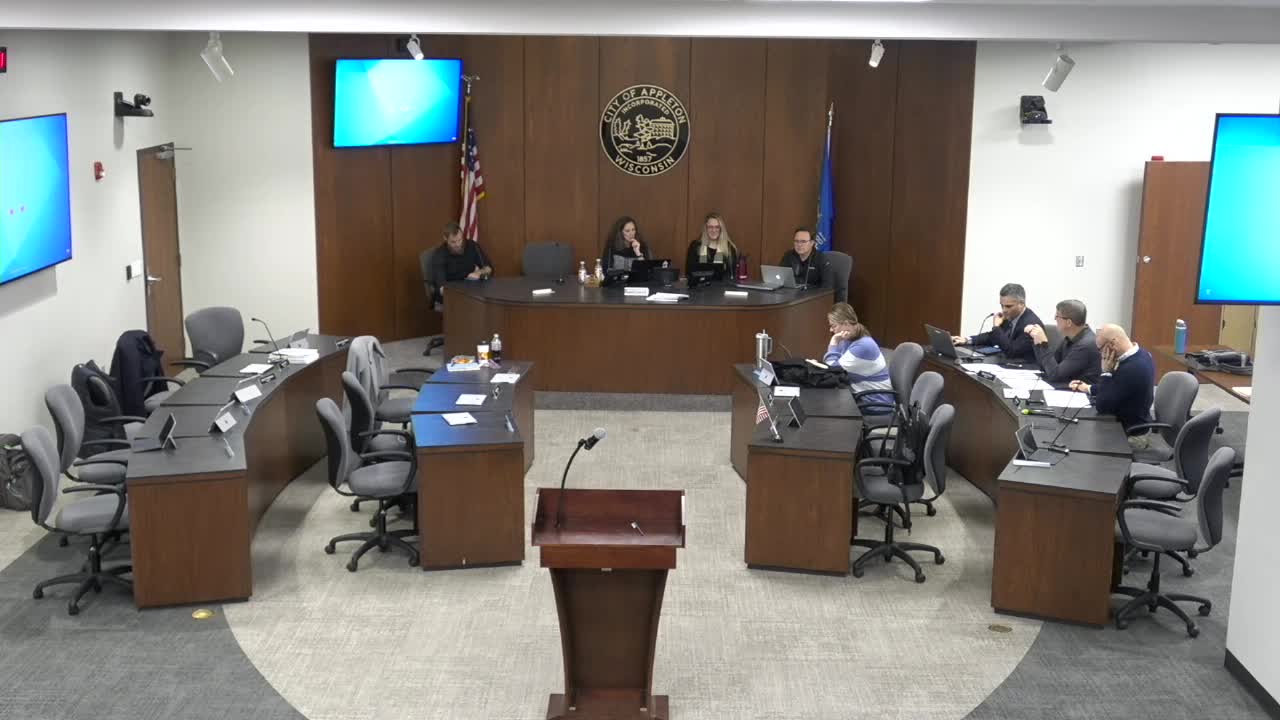Appleton City HR director outlines 2026 budget priorities, flags health-insurance and succession risks
Get AI-powered insights, summaries, and transcripts
Subscribe
Summary
Director Ratcheman presented the Human Resources department's 2026 information-item budget to the Human Resources and IT Committee, highlighting fringe-benefit administration, a favorable health-plan loss ratio near 90%, projected premium increases, and ongoing succession planning amid elevated retirement eligibility.
Director Ratcheman told the Appleton City Human Resources and Information Technology Committee at its Oct. 22 meeting that the Human Resources department’s 2026 budget is structured around three core areas—HR compliance and administration, talent acquisition and retention, and talent management and development—and that most dollars support staffing to serve all city departments.
Ratchetman (as presented at the meeting) said HR is responsible for administering fringe benefits and wellness programming, and described the department’s work on compensation administration, labor negotiations and legal compliance. She reported the health-insurance program is approximately a $10,000,000 budget and is currently operating at about a 90% loss ratio, meaning the plan is spending about $0.90 for every dollar budgeted. Ratcheman said that recent measures—an incentive program, PrudentRx, and a city–school district clinic partnership—have helped contain costs but warned year-end claims can change the picture quickly. She told the committee the average two‑year premium increase is about 3.75 percent, with a 3 percent increase into 2025 and a 4.52 percent increase forecast for 2026; she said medical trend was 9 percent in 2025 and is projected at 10 percent for 2026.
Ratcheman described department priorities for 2026 including improved onboarding with a 30/60/90-day connection plan, expanded succession-planning activities and continued use of software tools (a Baker Tilly compensation system and a LEARN training system). She said the department settled a new labor agreement with the fire union in 2025 and negotiated a side letter with Valley Transit to make mechanic positions more market‑comparable, which helped fill a hard‑to‑recruit vacancy. Ratcheman said about 46 percent of the workforce is currently eligible to retire immediately or within 10 years (a figure she contrasted with earlier statements that the number had been about 60 percent years ago and 44 percent last year), and she connected that metric to the department’s emphasis on leadership development programs.
Ratcheman reported 89 participants have completed the Thrive leadership program and said the department is considering an “aspiring supervisors” academy in 2026. She also discussed cultural and engagement efforts such as the City Star Awards and social events, and said HR continues quarterly and monthly claims reviews for benefits. She noted Teamsters negotiations for Valley Transit and separate police negotiations are anticipated in 2026.
Committee members asked questions during the presentation. Alder Wolf praised the leadership academy and asked whether the 2026–2030 outlook contains risks; Ratcheman said the city’s investment in compensation and training tools reduces near‑term risk but warned long‑term wage and benefit inflation is an ongoing concern. Alder Hayden urged the city to publicize internship opportunities early in 2026 to help recruitment. Alder Jones and others praised cultural initiatives and participation opportunities for elders.
The department’s presentation was an information item; the committee took no formal action on the HR budget at the Oct. 22 meeting and Ratcheman said she would be available to answer follow‑up questions before Budget Saturday.
